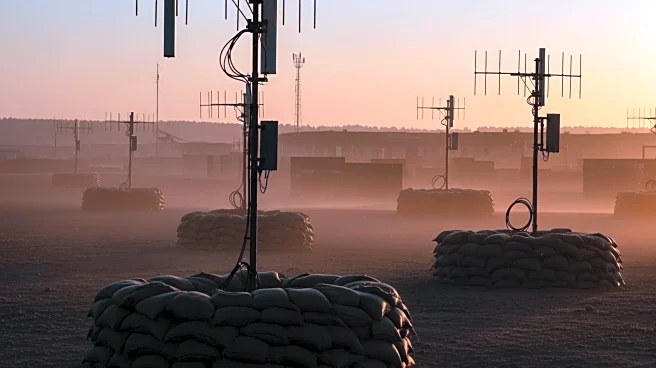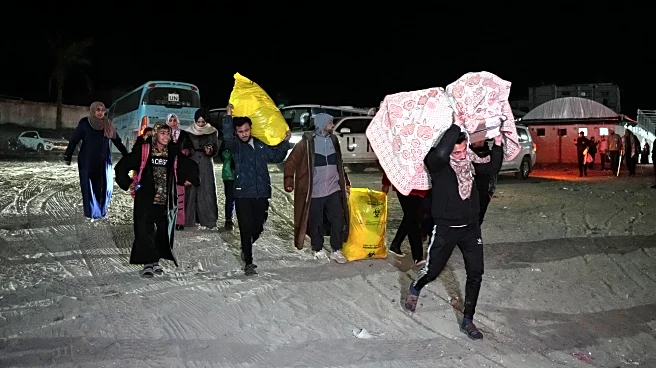What's Happening?
The Israel Defense Forces (IDF) have initiated surprise security drills in northern Israel following the killing of Hezbollah's military chief. The heightened alert level on the Lebanon border is due to concerns that Hezbollah might exploit the winter
weather and reduced visibility to retaliate. The drills are part of a broader strategy to prepare for potential responses from Hezbollah, which has historically been a significant adversary to Israel. The IDF's actions reflect ongoing tensions in the region, particularly along the border with Lebanon, where visibility and weather conditions can impact military operations.
Why It's Important?
The IDF's decision to conduct these drills underscores the fragile security situation in the region. Hezbollah's potential retaliation could escalate into broader conflict, affecting not only Israel but also regional stability. The drills serve as a preventive measure to ensure readiness against any aggressive moves by Hezbollah. This development is crucial for U.S. foreign policy interests, as stability in the Middle East is a key concern. The U.S. has historically supported Israel's security efforts, and any escalation could influence diplomatic relations and military strategies in the region.
What's Next?
The IDF will likely continue to monitor the situation closely, maintaining heightened alert levels along the Lebanon border. Future actions by Hezbollah could prompt further military responses from Israel, potentially involving international diplomatic efforts to de-escalate tensions. Stakeholders, including the U.S., may engage in diplomatic discussions to prevent further conflict and ensure regional stability. The situation remains fluid, with potential for rapid developments depending on Hezbollah's actions.














